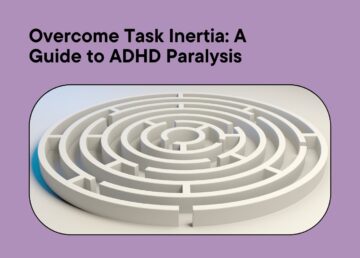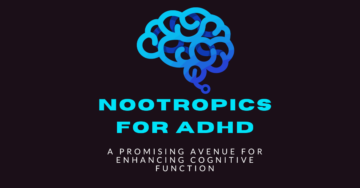
What Is High-Functioning Anxiety
Anxiety is a common human experience which can manifest itself in various ways. While in many instances anxiety can manifest itself in visible and apparent ways, in some cases anxiety can affect people in a more concealed manner. High functioning anxiety (HFA) is a term used to describe people who experience clinically significant symptoms of anxiety, but are able to maintain high level of functionality in their daily lives.
Although high functioning anxiety is not recognised as mental disorder according to the Diagnostics and Statistical Manual of Mental Disorders, it is well established construct in scientific literature and its negative effects on person’s well-being are well recognised.

In this post
What are the signs of High-Functioning anxiety
High functioning anxiety might not be immediately apparent as the signs and symptoms can be more subtle than they are for other forms of anxieties. Although there is no one-size-fits all list of symptoms for high functioning anxiety, some of the most common signs of it include :
- Perfectionism – people with HFA often have high desire to excel in what they do. They often set-out unrealistic expectations for themselves and others and they might be overly critical of their work and the potential mistakes they have made.
- Procrastination– people with HFA often tend to procrastinate their work, even if its important, due to potential fear of failure or due to their perfectionist work approach.
- Excessive worry and stress – HVA can cause excessive amount of worry and stress about variety of things, most commonly including their work, relationships, health and future. This can also be accompanied by feeling of being overwhelmed or drained.
- Physical symptoms – HVA can also manifest itself via physical symptoms commonly associated with anxiety, such as, headaches, muscle tension, heart palpitations or stomachaches.
- Overthinking– tendency to overthink is closely related to high functioning anxiety as individuals with HVA will often spend a lot of time worrying about the future, replaying past events, anticipating worst case scenarios for things to come. This can make it difficult to relax and often leads to difficulty sleeping.
- Irritability – due to feeling constantly “on edge” , people with HFA often feel irritated, they might find it difficult to tolerate frustrations and they might lash out to others.
- Some other signs associated with high functioning anxiety includes insecurity in relationships, emotional volatility, workaholism and avoidance behaviour.
What causes High-Functioning anxiety
The causes of high functioning anxiety are not yet fully understood and the exact causes can vary from person to person. Yet, there are several factors which can contribute to the development of HFA.
- Genetics – research has shown that genetics can play a significant role in anxiety disorders including high functioning anxiety, thus if you have family history of battling anxiety, you might be more predisposed to developing high functioning anxiety yourself.
- Environmental factors can play a significant role in development of high functioning anxiety. People who have experienced traumatic life events such as abuse, neglect o childhood trauma have a higher chance to develop HFA.
- Neurobiological factors – HFA can be caused or amplified by imbalance of certain brain chemicals such as serotonin and norepinephrine which affect mood and anxiety levels.
- Other factors such as substance abuse, medical conditions and maladaptive coping mechanisms can also cause or amplify high functioning anxiety.

Who is at risk of High-Functioning anxiety
Anyone can be at risk of developing high functioning anxiety, but there are some groups of people who might be at increased risk of developing it. According to the best available information, the groups of people who have the highest risk of developing high functioning anxiety disorder include:
- People who abuse drugs or alcohol
- People who are exposed to chronic stress at work, relationships or other areas of life
- People with personality traits such as perfectionism and neuroticism
- People with family history of anxiety or other mental disorders
- People with certain medical conditions such as heart disease or thyroid problems
- People who have experiences childhood trauma or abuse
How can High-Functioning anxiety impact your life
Although in many instances, from the outward appearances, people with high functioning anxiety can appear to be highly motivated and successful, there are multiple ways how HVA can have a negative impact on a person’s life:
- It can lead to burnout
- The chronic stress can cause physical problems to your health such as headaches or digestive issues
- It can have a negative impact on personal relationships
- HVA can lead to impaired decisions making and social life
- High functioning anxiety can also lead to reduced creativity, innovation and the ability to relax. As well as cause issues with work-life balance and cause further mental health issues if left untreated.

How to manage High-Functioning anxiety
There are numerous ways how high functioning anxiety can be managed and mitigated, although it is important to note that it might not be possible to completely eliminate it in many cases. Some of the most effective methods for treating it includes:
- Medication – antidepressants and anti-anxiety medication can be helpful for treating HFA in many instances and can help to reduce symptoms of anxiety and improve the overall quality of life. It is important to note that you should consult a doctor before deciding on taking any medicine.
- Relaxation techniques – techniques such as meditation and deep breathing can promote relaxation, help to reduce anxiety symptoms and overall make you feel calmer.
- Therapy– via identifying and challenging the negative thoughts and beliefs that cause HFA, therapy can help you to mitigate some of the worst symptoms of high functioning anxiety. Cognitive-behavioural therapy (CBT) can be particularly effective in treating HFA.
- Lifestyle changes – making changes in your lifestyle such as eating a healthier diet, exercising more, getting enough sleep or spending more time outdoors can have a positive impact on your anxiety levels and help to manage anxiety symptoms.

What are best coping strategies for High-Functioning anxiety disorder
There are various coping strategies that can help you to reduce the negative impact anxiety is causing in your life and to improve your overall well-being. Some of the most effective coping strategies include:
- Breathing exercises – slow, deep breaths can reduce anxiety and promote relaxation. Practice deep breathing techniques to help you calm down and to relax your nervous system.
- Mindfulness and meditation– in combination with breathing exercises, regular mediation or mindfulness sessions can help you to better cope with high functioning anxiety symptoms.
- Limit caffeine and alcohol– reducing the consumption of both caffeine and alcohol from your diet can help to reduce anxiety triggers associated with them.
- Healthy lifestyle – maintaining healthy lifestyle including healthy food, regular exercises and getting plenty of sleep can have a positive effect on your overall wellbeing.
- Setting realistic goals, improving time management and limiting overworking can lead to a better work-life balance and reduce the effects of anxiety.
- Joining support groups and increasing social support from friends and family can provide an outlet for expressing your feelings and concerns further limiting the negative effects of HFA.
- In some cases professional help and medication might be the most effective coping strategy if the high functioning anxiety disorder has such a negative impact on your life that its impossible to solve it by yourself.
When should you seek help for High-Functioning anxiety disorder
Although, as previously stated, high functioning anxiety disorder can be often managed by the affected individual and is not as intrusive as many other forms of anxiety such as excessive anxiety or generalised anxiety, there are specific indicators that should prompt you to seek assistance from a mental health professional. If you find yourself in any of the below mentioned situations, it is recommended that you seek assistance from a mental health professional:
- Impaired functionality – if high functioning anxiety is interfering with your daily functionality such as by causing difficulties at work, in relationships or in your personal life.
- Consistent and persistent symptoms– if you are experiencing persistent symptoms such as chronic self worry, self-doubt or physical manifestations of anxiety.
- Decline in physical health – if anxiety related symptoms are causing deterioration in your physical health such as chronic headaches, sleep disturbance or gastrointestinal problems.
- Panic attacks, self-harm or suicidal thoughts
- Inability to manage anxiety – if you have tried out various self coping strategies and the anxiety disorder is worsening, you should contact a mental health professional.
- If you are abusing alcohol or drugs to cope with anxiety disorder.

Conclusion
High functioning anxiety disorder or HVA is a complex and in many instances concealed form of anxiety which can have a considerable and detrimental impact on person’s life and well-being. Although it has not been officially classified as mental disorder, its causes, symptoms and effects have been clearly outlined within the existing scientific literature.
Recognizing the signs of high-functioning anxiety is the first step toward effective management. These signs include perfectionism, procrastination, excessive worry, physical symptoms, overthinking, irritability, and more. It can be caused by a combination of genetic, environmental, and psychological factors, and certain individuals are more at risk due to their personality traits, work environments, family history, and past traumatic experiences.
High-functioning anxiety can have a profound impact on one’s life, leading to burnout, physical health issues, strained relationships, impaired decision-making, and more. However, there are various strategies and coping mechanisms to manage it effectively. These include medication, relaxation techniques, therapy, lifestyle changes, and setting realistic goals, among others.
Knowing when to seek professional help is crucial, as persistent and severe symptoms, impaired functionality, physical health deterioration, panic attacks, self-harm, or suicidal thoughts warrant the expertise of a mental health professional.
High-functioning anxiety is a condition that requires attention and management, and seeking help is a sign of strength, not weakness. By understanding and addressing this form of anxiety, individuals can work toward a more balanced and fulfilling life, with improved mental well-being.
References
- Maenpaa, J., Working with High Functioning Anxiety: Supporting Our Overachievers.
- Evans, O.G., What Are The Signs Of ‘High-Functioning Anxiety’?–Is The Term Problematic?.
- Jasmin, G., 2019. The Relationship Between Stress and Cognitive Functioning (Doctoral dissertation, Assumption College).
- Alandy-dy, Z.N., 2019. Examining the Efficacy of Applied Behavior Analysis and Cognitive Behavioral Therapy in Reducing Anxiety and Other Related Disorders among Children and Adolescents with High Functioning Autism (Doctoral dissertation, Azusa Pacific University).
- Campbell, E., 2018. Reconstructing my identity: An autoethnographic exploration of depression and anxiety in academia. Journal of Organizational Ethnography, 7(3), pp.235-246.
- Guy-Evans, O., How Neuroticism Affects Your Behavior.





